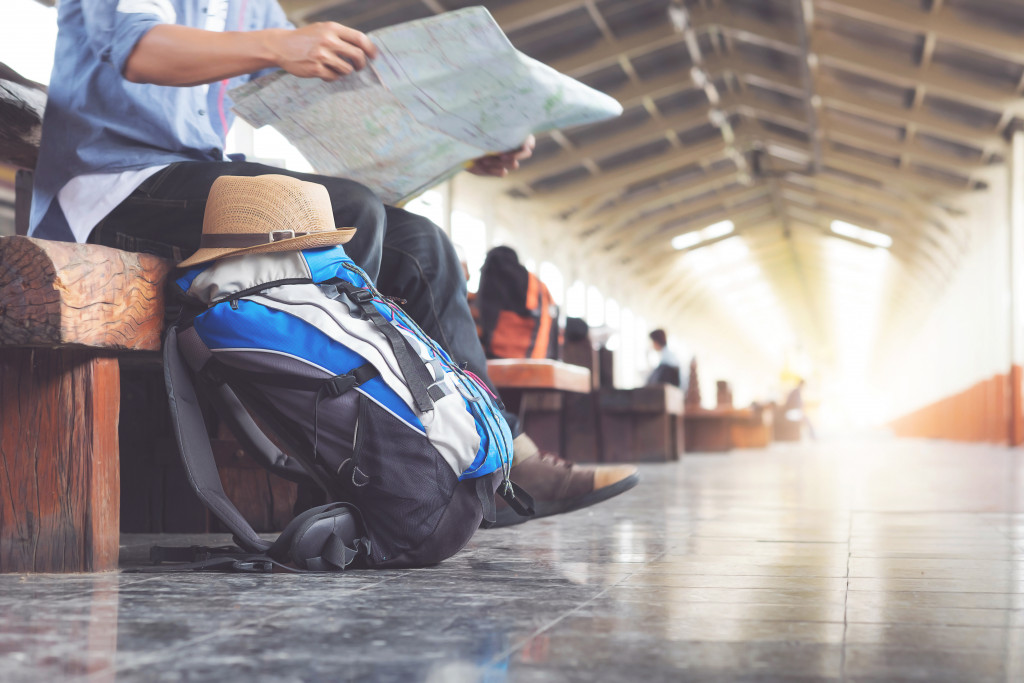In today’s world, when we are plagued with the threat of deadly viruses, health is a serious matter to look after. We need to take better care of ourselves now more than ever. Ignorance may immediately have a detrimental impact on one’s health. Nowadays, when crowds potentially contribute to the spread of an epidemic, traveling can pose a significant risk to your health. It is not an option to not travel.
That’s because everyone needs to earn their bread butter, and so does you. That said, unless you can work from home, not leaving home is not an option. Aside from making money, you may need to travel for various reasons, such as visiting aging parents, going on a vacation to relax, and so on. In any event, to ensure optimum safety when traveling, practice the health care precautions given below.
General Check-Up
It is recommended that you have a general medical check-up regardless of your age. If you’re going on a trip, plan it three weeks ahead of time. Frequent check-ups are required to detect and cure illnesses at an early stage. Moreover, it provides a basis for your doctor to provide you with the necessary health guidance. If you have a history of medical problems or have had surgical operations, you should not miss the appointment.
There are several more considerations, such as discussing the risks if you are pregnant and traveling. Vaginal bleeding, prior premature labor, and placental abnormalities are examples of this. If you are pregnant and in poor health, avoid traveling at all costs.
Similarly, if you have kids, schedule a general check-up for them as well. This is necessary to ensure their health while traveling. You can get their physical health, including eyes, nose, and bowels, checked. You should also get their oral health evaluated; this is something that is often overlooked. But you shouldn’t since your baby, like other kids, may be munching on chocolates and candy.
And traveling gives them even another excuse to munch mindlessly since traveling is all about letting loose. Make an appointment with an experienced children’s dentist before the trip to ensure that they get the best dental care possible.
Vaccination
If you have not been vaccinated against the Covid-19 virus, you should avoid traveling. If you are not immunized and catch the virus, you will end up infecting a significant number of individuals along the way. Vaccination reduces the likelihood of disease transmission and hence not to be overlooked.
Moreover, to guarantee your safety, observe all regulatory rules for the illness, such as wearing double-layered masks, using hand sanitizers, and maintaining social distance. You should also take a flu vaccine to lower your risks of contracting an illness. It improves your immunity and aids in the battle against influenza-causing infections.
Travel Medical Kit
You never know when you will need medical aid in between the travel or after reaching the destination. Therefore, carrying a health/medical kit can be helpful. You can carry the vitamin tablets with the other general medications in case of any emergency. For example, anti-motion, nausea, fever tablets, along with antihistamines, antacids, and other medications, might come in handy.

Carrying a first aid kit, in addition to the medical equipment, is essential. We are prone to illnesses and injuries even while traveling. A first-aid pack will help you with them by lessening the intensity. So, keep a first-aid kit on hand with supplies to heal sprains, bruises, cuts, and such.
Mindful Eating and Hydration
Whether you are traveling a short trip or a long one, staying hydrated is critical. Dehydration might cause you to feel dizzy or exhausted even before you get to your destination. Also, when we travel, we generally rely on snacks rather than real food. These prepared foods may have an adverse effect on your health and create digestive issues, thereby spoiling your trip. So carry healthy foods such as fruits and energy bars with you, and drink plenty of water.
Quality Sleep
Getting enough sleep is essential for keeping a healthy immune system when traveling. You should obtain at least 7 hours of sleep the previous day. To get quality sleep, reduce your intake of coffee and alcohol.
Travelers With Disability
A person travelers with a disability need to take extra precautions. If you are one, make early preparations for wheelchairs and seats. You should be aware of the medical facilities in the area where you want to stay or visit. Obtain a doctor’s note outlining your medical needs or problems.
Traveling is not the same as it used to be, and we must take care of ourselves like we’re babies. That’s because even a mild illness may be fatal. Therefore, even if you are fully immunized against Covid-19, you should take precautions. Aside from the virus, you may be exposed to various health conditions and fatal illnesses. So, follow the above guidelines to ensure safe and healthy travel.
